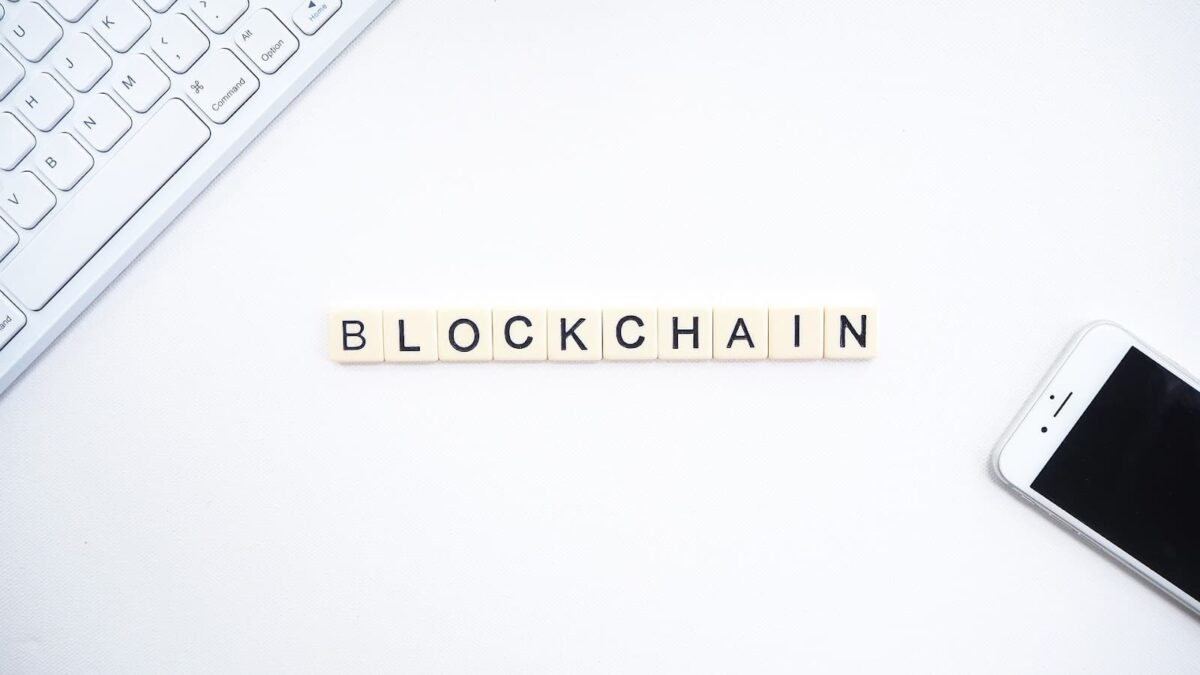
How Blockchain Ensures Fair Play in Online Roulette
Introduction
In the fast-paced online gambling world, ensuring fairness and transparency has always been a challenge. Enter blockchain technology – a game-changer that’s revolutionizing how we think about online roulette and other casino games. But what exactly is blockchain, and how does it level the playing field for gamblers worldwide? Let’s dive in and explore this exciting intersection of cutting-edge tech and classic casino thrills.
Understanding Blockchain Technology
What is Blockchain?
Picture a digital ledger that’s not just stored on one computer, but on thousands of them simultaneously. That’s the essence of blockchain. It’s a decentralized system where information is stored in “blocks” and linked in a “chain.” This structure makes it incredibly difficult to tamper with data, as any change would need to be made across all copies of the ledger. It’s like having a room full of accountants all keeping an eye on each other’s books – pretty tough to pull a fast one, right?
How Blockchain Works
So, how does this digital bookkeeping marvel function? At its core, blockchain relies on some pretty nifty concepts. First, we’ve got consensus algorithms – fancy talk for the methods used to ensure all those computers agree on what’s going on. Then there’s cryptographic hashing, like giving each piece of data its unique fingerprint. And let’s not forget about distributed ledgers – that’s the part where everyone gets a copy of the records. It’s a bit like a high-tech game of telephone, but one where the message never gets garbled.
Blockchain in Online Gambling
The Role of Blockchain in Online Casinos
Blockchain is shaking things up in the world of online casinos, and roulette for arab players is no exception. It’s not just about keeping records anymore – blockchain is changing how games are run, bets are placed, and winnings are paid out. Imagine a casino where every spin of the wheel is verifiable, every bet is automatically processed, and every payout is instant. That’s the kind of revolution we’re talking about here.
Advantages of Blockchain in Online Gambling
Why are online casinos jumping on the blockchain bandwagon? Well, the benefits are pretty sweet:
- Transparency: Every transaction is recorded and visible to all.
- Security: Hacking the system becomes nearly impossible.
- Fairness: Game outcomes can be independently verified.
- Speed: Transactions happen in the blink of an eye.
- Lower costs: Fewer middlemen mean more savings for players and casinos alike.
It’s like upgrading from a rusty old lock to a state-of-the-art security system – suddenly, everyone feels much safer.
Ensuring Fair Play in Online Roulette with Blockchain
Provably Fair Gaming
Have you ever wondered if that online roulette wheel is really random, or if someone has their thumb on the scale? That’s where “provably fair” gaming comes in and is a real game-changer. Here’s how it works: before you even place a bet, the casino generates a secret number and gives you an encrypted version. After the game, you get the key to decrypt it. This way, you can verify that the outcome wasn’t tampered with after placing your bet.
But blockchain takes this a step further. Instead of trusting the casino to handle this process, it’s all done on the blockchain. Every spin, bet, and outcome is recorded in a way that can’t be altered. It’s like having a neutral referee watching every move, but this referee is made of code and can’t be bribed or fooled.
This system protects players and shields casinos from accusations of cheating. In a world where trust is currency, provably fair gaming is like Fort Knox for online roulette integrity.
Real-World Applications
This isn’t just pie-in-the-sky theorizing – real online casinos are putting blockchain to work right now. Take FunFair, for example. They’ve built an entire platform for fair online gambling using Ethereum smart contracts. Or look at Edgeless, which boasts a 0% house edge thanks to blockchain technology. These platforms prove that blockchain isn’t just a buzzword – it’s a real solution to long-standing issues in online gambling.
Technical Implementation
Smart Contracts in Online Roulette
Smart contracts are like the referees of the blockchain world, but instead of blowing whistles, they execute code. In online roulette, these digital agreements automatically handle bets, determine outcomes, and distribute winnings—no human intervention is needed.
Here’s the cool part: it can’t be changed once a smart contract is deployed. It’s like setting the rules in stone, but the stone is made of unbreakable code. This means that when you place a bet, you’re not trusting a person or a company – you’re trusting mathematics and computer science.
Smart contracts also enable some pretty nifty features. Imagine instant payouts the moment the ball lands on your number. Or consider the possibility of complex betting systems that would be too cumbersome to manage manually. With smart contracts, the only limit is the imagination of the developers.

Random Number Generation (RNG) and Blockchain
Random number generation is the heartbeat of any fair roulette game. After all, if the numbers aren’t truly random, the game isn’t truly fair. Traditional online casinos use complex algorithms to generate random numbers, but there’s always a nagging doubt – could these algorithms be manipulated?
Blockchain crushes these doubts like a sledgehammer to a walnut. Using the blockchain as a source of randomness, we can create truly unpredictable and verifiable random numbers. Here’s how it works: the blockchain constantly generates new blocks, each with its unique hash (remember those digital fingerprints we talked about earlier?). These hashes are unpredictable and can be used as seeds for random number generation.
But it gets even better. Some blockchain platforms are experimenting with quantum random number generation. That’s right – they’re harnessing the universe’s fundamental uncertainty to ensure your roulette game is fair. It’s like having Einstein and Schrödinger as your casino security team.
Challenges and Limitations
Scalability Issues
Now, let’s not get carried away – blockchain isn’t a magic wand that solves all problems. One of the biggest hurdles facing blockchain-based online roulette is scalability. As more and more players join the game, the blockchain can start to feel the strain.
Think of it like traffic on a highway. When there are just a few cars, everything moves smoothly. But as more cars join, things start to slow down. In blockchain terms, this means transactions (like bets and payouts) can take longer to process and become more expensive.
There are solutions in the works, though. Some platforms explore “layer 2” solutions, like adding express lanes to our highway. Others are looking at entirely new blockchain architectures that can handle more transactions. It’s like redesigning the road system to handle future traffic – tricky, but necessary for growth.
Adoption Barriers
Another challenge is getting people on board with this new technology. For many players, the idea of blockchain is about as clear as mud. There’s a learning curve involved, and not everyone is eager to climb it.
Then there’s the regulatory hurdle. Governments and gambling authorities are still trying to understand blockchain. It’s like trying to fit a square peg (blockchain) into a round hole (traditional gambling regulations). Progress is being made, but it’s a slow process.
Lastly, there’s the issue of volatility in cryptocurrencies, which are often used in blockchain gambling. The value of these digital coins can swing wildly, which can be a turn-off for players looking for stability in their gambling funds.
Future Prospects
Innovations on the Horizon
Despite these challenges, the future looks bright for blockchain in online roulette. We’re seeing some exciting innovations on the horizon. For instance, some developers are working on augmented reality roulette games that use blockchain to ensure fairness. Imagine playing a physical roulette game in your living room, with all the trust and transparency of blockchain backing it up.
There’s also talk of using artificial intelligence with blockchain to create more personalized and engaging roulette experiences. These AI systems could learn player preferences and adjust the game accordingly, all while maintaining the fairness guaranteed by blockchain.
The Potential for Widespread Adoption
As these technologies mature and the challenges are addressed, blockchain becomes the gold standard in online gambling. It’s not hard to imagine a future where players refuse to gamble on platforms that don’t use blockchain – much like how we now expect websites to use HTTPS for security.
The key will be education and user experience. Adopting will likely accelerate as blockchain platforms become more user-friendly and the benefits become more widely understood. It’s a bit like the early days of the internet – clunky and confusing at first, but eventually, something we can’t imagine living without.
Conclusion
Blockchain technology is reshaping the landscape of online roulette, bringing unprecedented levels of fairness, transparency, and security to the virtual felt. While challenges remain, the potential benefits are too significant to ignore. As the technology evolves and adoption grows, we may look at the dawn of a new era in online gambling – one where “the house always wins” is no longer a given, and where every spin of the wheel is provably fair. The roulette wheel of the future is here, and it’s powered by blockchain.



